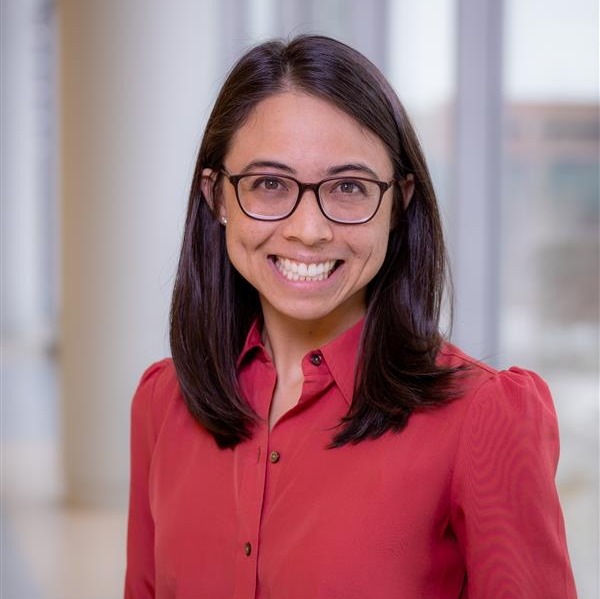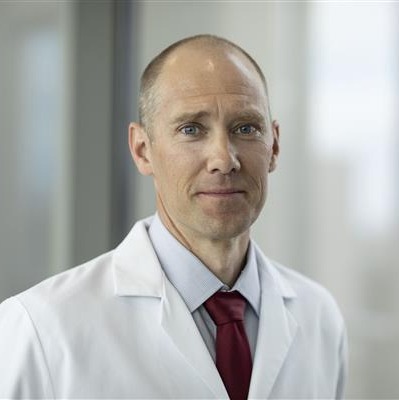When Alyssa Castillo, MD, a University of Colorado School of Medicine alumna, stepped back on the CU Anschutz campus in September of 2022, it felt both familiar and different.
She vividly remembered what it was like to be a CU medical student — the late nights studying, working in the anatomy lab, and walking the hospital floors.
But now, she was an assistant professor in the Division of Infectious Diseases in the Department of Medicine, returning to the school to share her medical expertise and teach future doctors, while also pursuing her own academic interests.
Becoming a faculty member is an exciting opportunity, yet it can also be daunting at times given the different career paths each faculty member may take. To help these junior faculty members thrive, leaders in the Department of Medicine decided to start a pilot program, called Launch Teams, to provide mentorship.
Each Launch Team consists of a junior faculty member called a “launchee” and four advisors, both within and outside of the Department of Medicine. The team meets four times throughout the year, and the launchee is given resources and exercises to do in between each meeting.
When Castillo learned about Launch Teams from Edward Stenehjem, MD, the department’s executive vice chair and the interim division head of the Division of Infectious Diseases, she immediately knew it was something she wanted to participate in.
“I was craving the opportunity to learn from people who had successfully navigated academic medicine — to learn how I could be the most intentional at this stage in my career and contribute most effectively to our division and campus,” Castillo says.
Although it has only been a few months, Castillo is already seeing the benefits.
“It’s filled a really important need here,” she says. “I love that they’ve introduced this program.”
Igniting the spark
The idea for the Launch Teams program originated from the Department of Medicine Chair, Vineet Chopra, MD, MSc, who participated in a similar program at the University of Michigan, where he previously worked.
Stenehjem says the CU Department of Medicine leaders saw there was a need for that type of structured, early mentorship for their faculty as well.
“This is a method to ensure that our junior faculty members have the structure that they need to be successful,” he says.
Each Launch Team is made up of the launchee, a member of the Department of Medicine leadership, a division chief or designee, a senior member of the division with similar interests as the launchee, and a senior member outside of the division.
Castillo’s team of mentors include: Sunita Sharma, MD, the department’s vice chair for faculty development and mentorship; Timothy Jenkins, MD, an associate professor in infectious diseases; Holly Frost, MD, an associate professor in the Department of Pediatrics; and Stenehjem.
“What I really like about my team is that it spans different institutions,” Castillo says. “Each mentor brings expertise in an area that I'm hoping to develop.”
 Alyssa Castillo's Launch Team. From left to right: Timothy Jenkins, Sunita Sharma, Alyssa Castillo, Holly Frost, and Edward Stenehjem. Photo courtesy of Stenehjem.
Alyssa Castillo's Launch Team. From left to right: Timothy Jenkins, Sunita Sharma, Alyssa Castillo, Holly Frost, and Edward Stenehjem. Photo courtesy of Stenehjem.
Sharma, for instance, is not in the Division of Infectious Diseases but she has expertise in developing a career in academic medicine, Castillo says. Jenkins has extensive experience in antimicrobial stewardship as it relates to adult patients, whereas Frost, on the other hand, is a leader in pediatrics.
“The ways they've built their careers are all very different, and I really enjoy that,” Castillo says. “It is nice to see how each mentor has a similar academic interest but has deployed it in different ways.”
Throughout 2024, Castillo and her team will meet quarterly, but before the meetings, Castillo has preliminary work to complete. For example, prior to her first meeting this year, she had to do an exercise where she determined her “what and why” statements, reflecting on what her career missions are, and what motivates them.
Castillo also created a career development plan, documenting what projects she is working on, the conferences she plans to attend, and her research initiatives. This plan allows her mentors to understand her goals and help her create a plan.
“As an early-career faculty member, there are so many skills to develop and projects of interest,” she says. “It's been helpful to have the input of people who have successfully navigated that and can provide guidance on how to strategically prioritize finite time in ways that make sense.”
One of Castillo's favorite parts of the Launch Teams program is the team meetings.
“For years, I have had a mentorship team, but those meetings happened asynchronously with individuals. What’s powerful about this program is that it puts all of those people in one room at the same time,” she says. “It leads to creative idea generation. Truly, the magic of Launch Teams is the synergy between mentors.”
 Edward Stenehjem, MD, and Alyssa Castillo, MD. Image taken by Jennifer Bilsey for the CU Department of Medicine.
Edward Stenehjem, MD, and Alyssa Castillo, MD. Image taken by Jennifer Bilsey for the CU Department of Medicine.
A mentor’s perspective
At the end of Castillo’s first Launch Team meeting, Stenehjem felt invigorated. Serving as a mentor is one of the best parts of Stenehjem’s job, as he is passionate about helping develop others’ careers.
“That’s how I define success for myself, it is helping others be successful,” he says. “It's really just a joy to be able to think creatively about how we make connections, how we build people, how we get people recognized for the work that they've done, and make sure that we shine the spotlight on them as opposed to ourselves.”
For early-career faculty members, it can be hard for them to identify and connect with mentors on their own.
“It can be intimidating for junior faculty people to reach out to more senior faculty members and say, ‘Hey, I need you, I need your time, and I need you to focus on me,’” Stenehjem says. “A structured mentorship program that evolves over time, just like Launch Teams does — I think that's almost a requirement.”
As a Launch Teams mentor, Stenehjem focuses on guiding his mentees to figure out for themselves what drives them and brings them joy.
“I like to lead teams with curiosity and respect to be able to innovate, drive change, and improve health,” he says. “The whole intent is that by the end of that year, we’ve been able to identify their areas of interest, identify other people they should meet with, and take down barriers to allow them to be successful.”
From mentorship to sponsorship
What makes the Launch Teams program extraordinary in Castillo’s mind is that it is not just about senior faculty members giving advice to their early-career colleagues. It is also a way of formalizing sponsorship.
“Sponsorship is really saying, ‘I see this opportunity, and I’m going to help you make that happen,’” Castillo says. “By strategically including leaders in early-career faculty members’ growth trajectory, the Launch Teams create powerful opportunities for sponsorship — and you can’t put a price on that.”
For other early-career faculty members in the Department of Medicine who are invited to join a Launch Team, her message is simple: “It’s so valuable. Don’t miss this opportunity.”
Stenehjem says the experience is just as gratifying for the mentors as it is for the mentees, and he looks forward to the program’s growth in the upcoming year.
“This is our way to create incredible physicians and advanced practice providers (APPs), whether they're educators, researchers, or innovative clinicians,” he says. “This is the way the CU Department of Medicine creates these amazing doctors and APPs who drive better health care for our communities.”





